Institute of Political Science organizes 2020 International Conference on E-Society to share solutions to recent crises
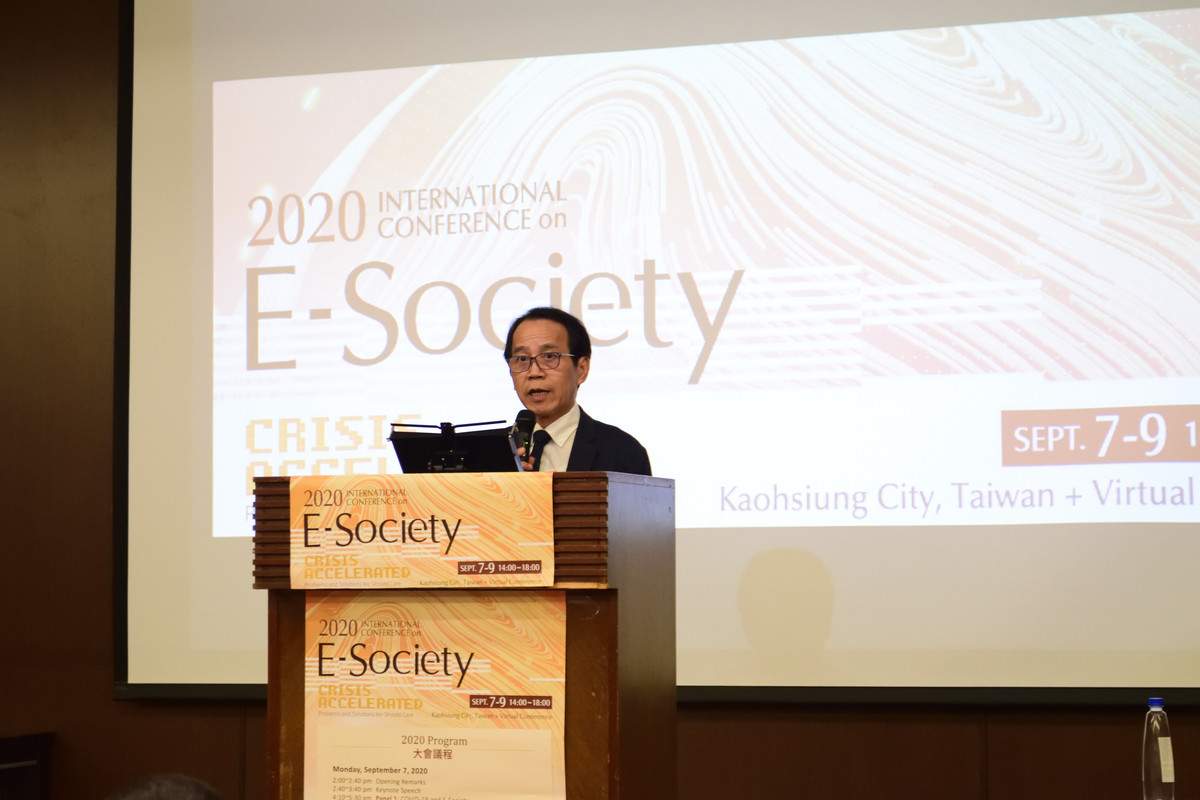
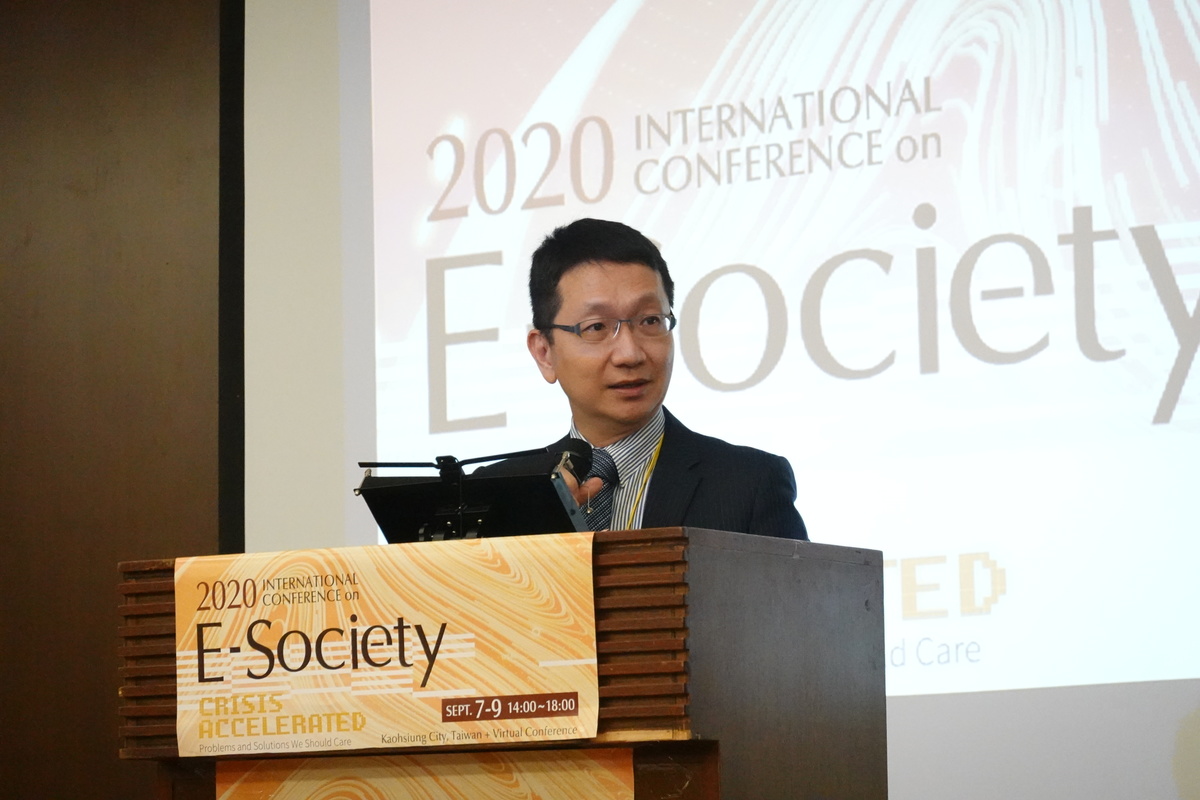
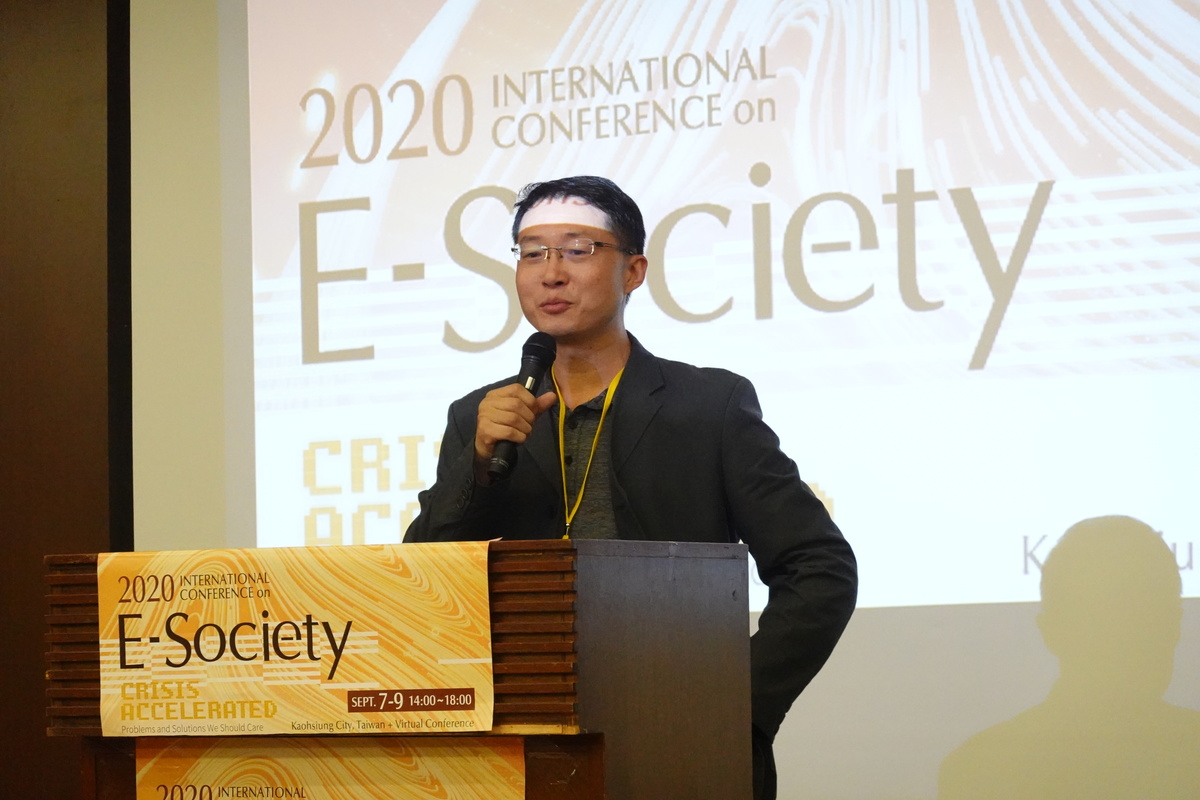
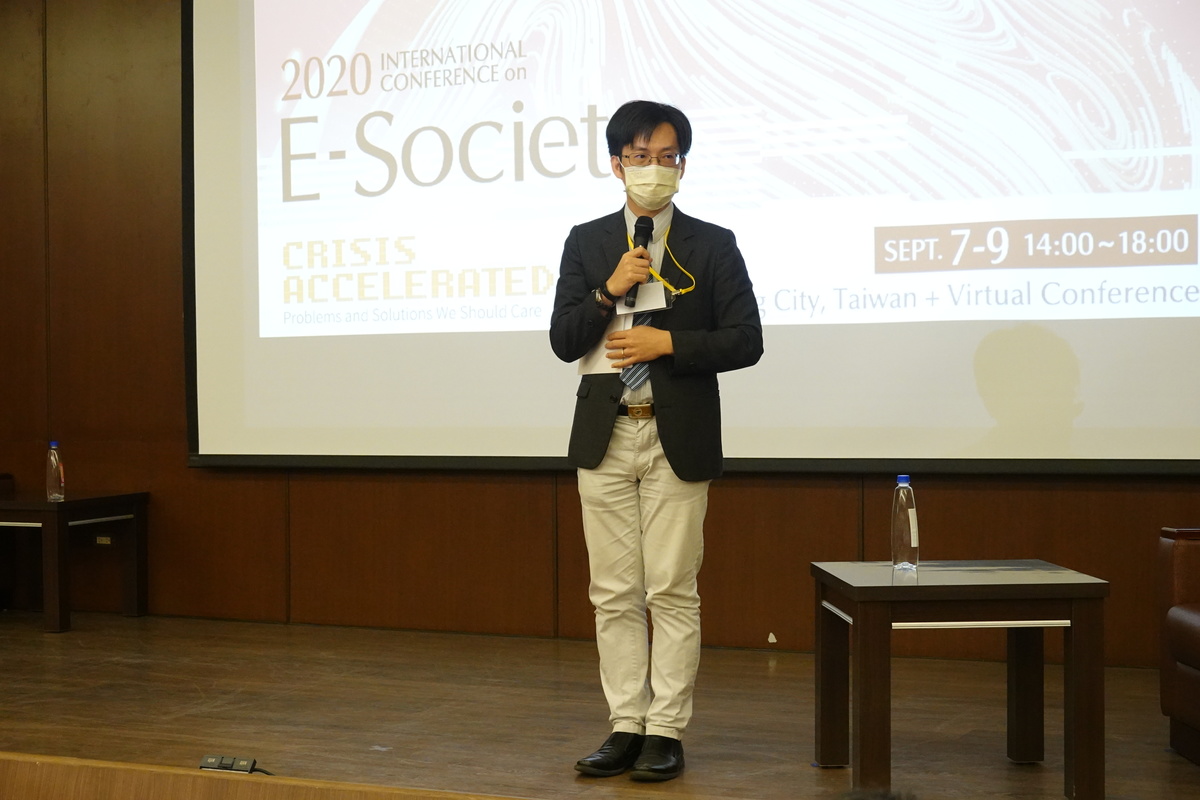
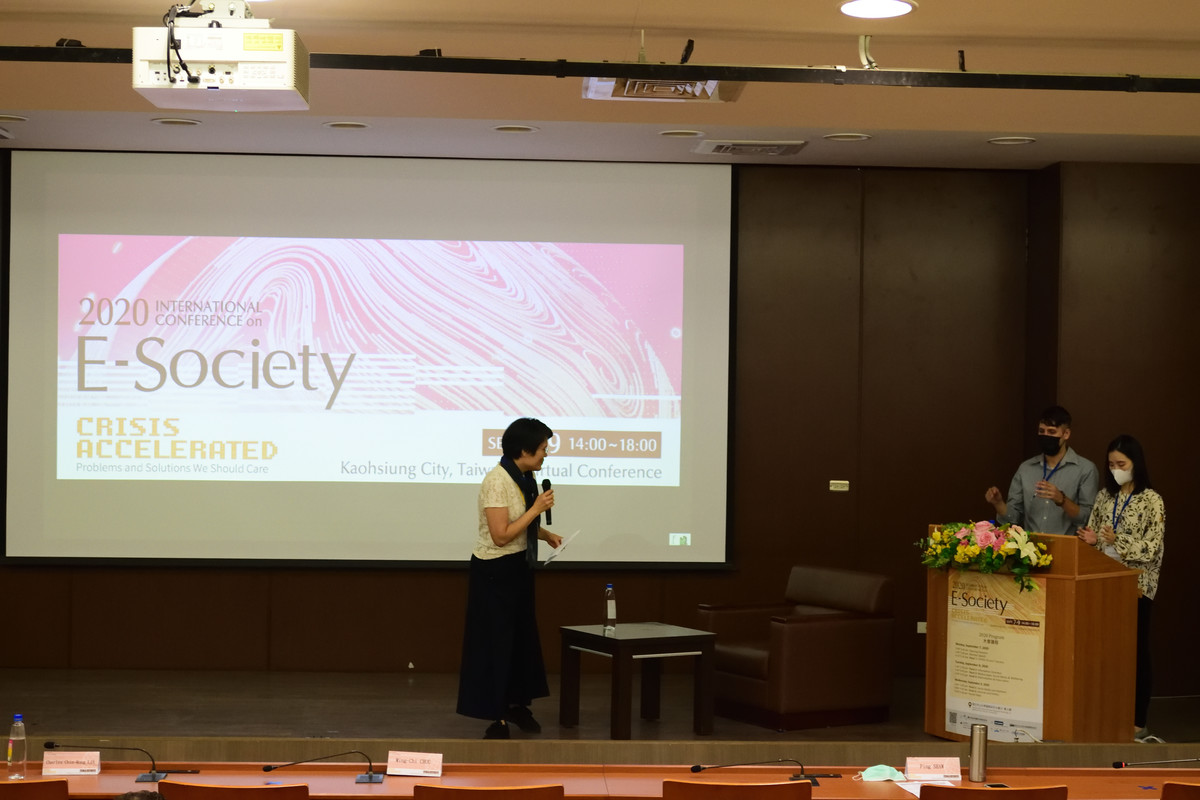
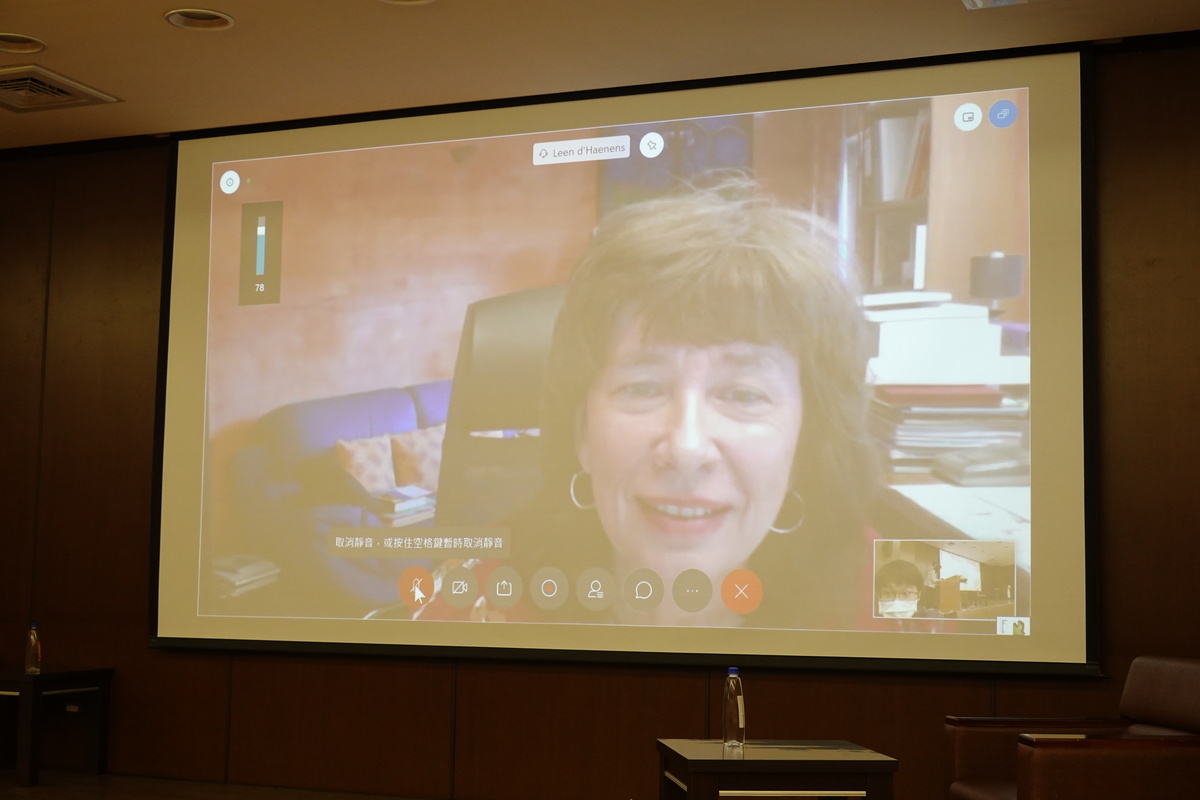
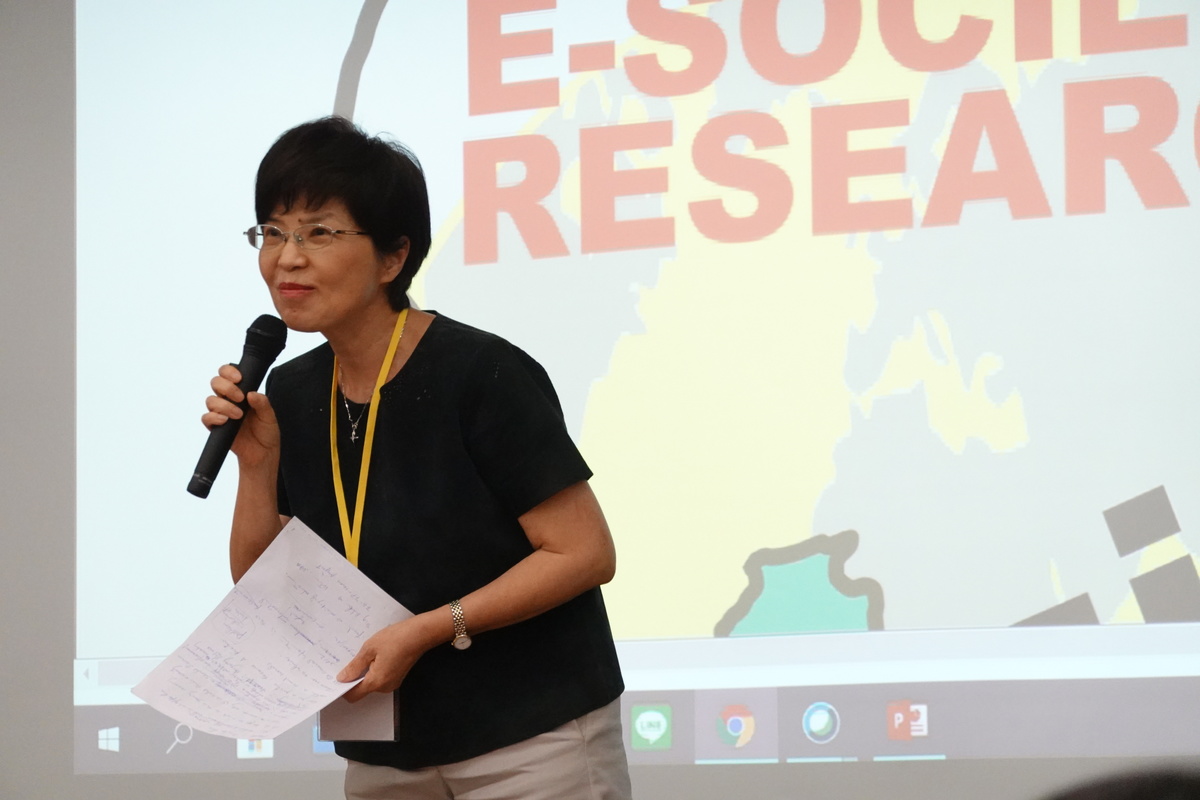

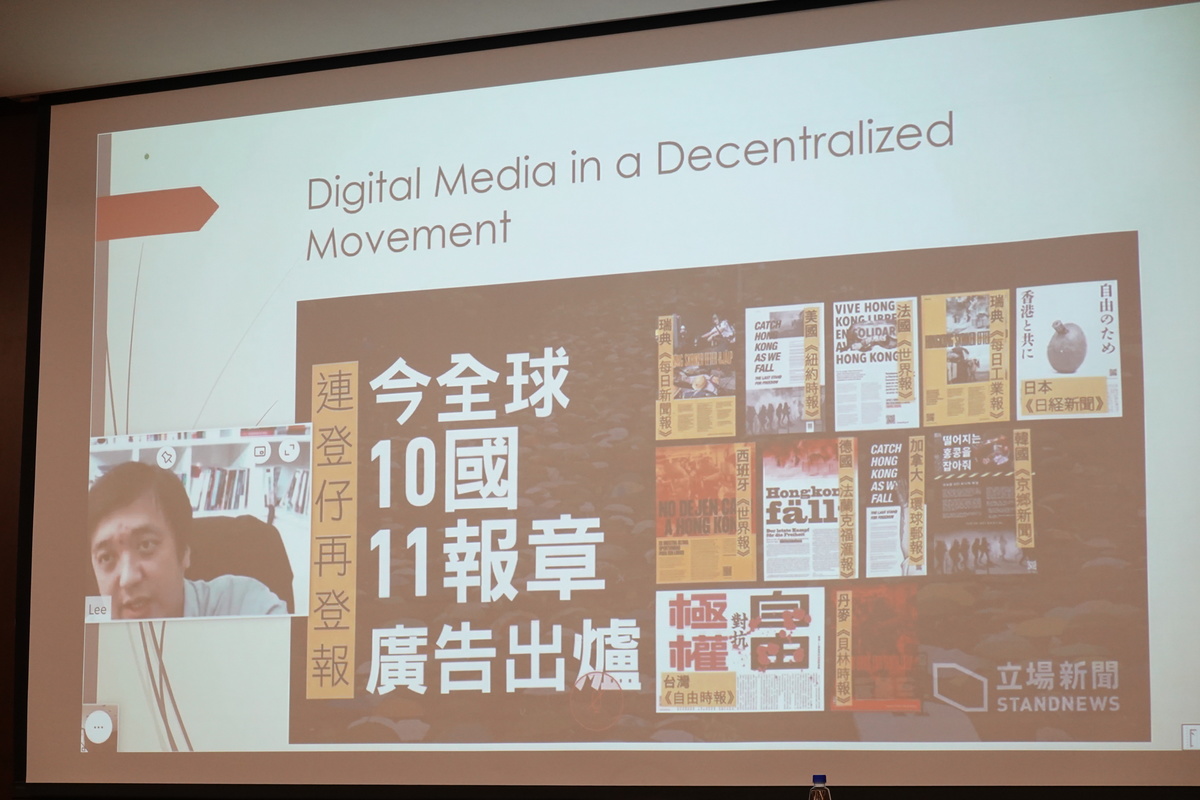
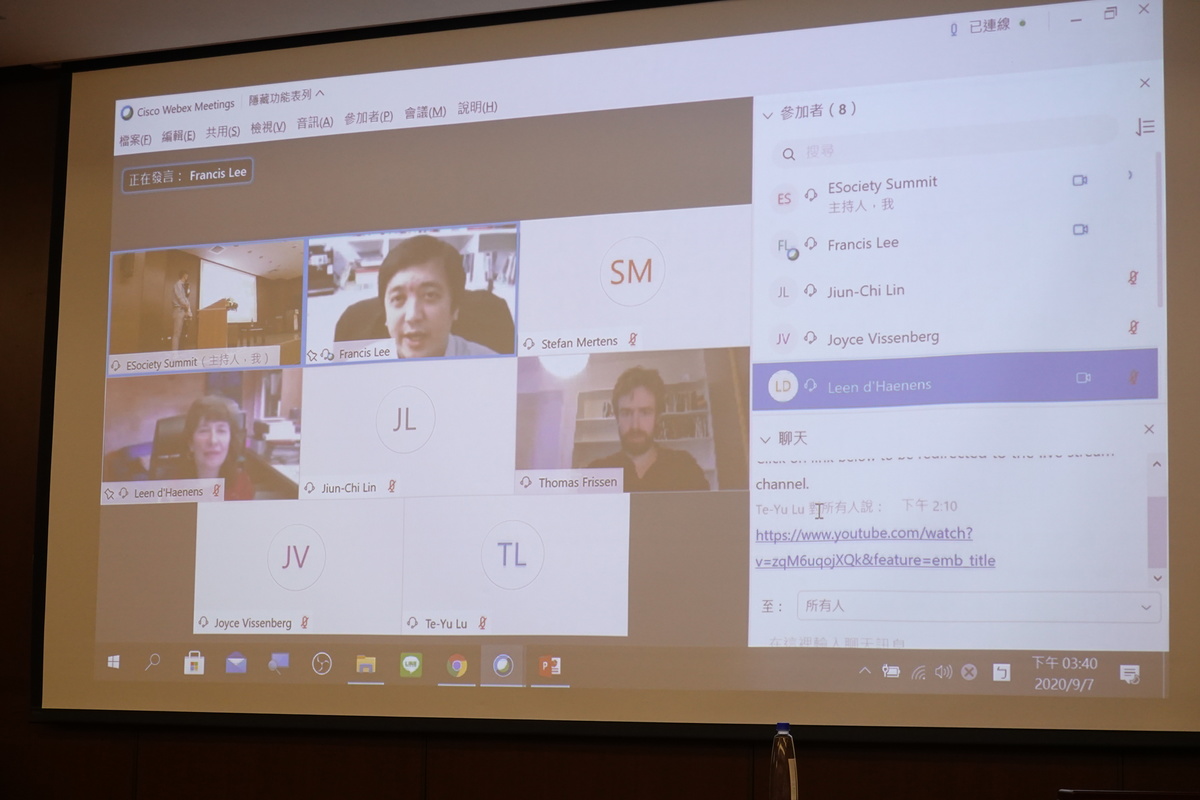
National Sun Yat-sen University hosted the bi-annual International Conference on E-Society: Crisis Accelerated organized by the Institute of Political Sciences as a three-day event from September 7 to 9, held both on site and online. This year’s edition aimed at facilitating cross-disciplinary collaboration to evaluate recent issues, identify emerging concerns, and share possible solutions and was meant to be a “problem-driven platform to appreciate any solution from different fields”, as said by General Conference Chair – Professor of the Institute of Political Science Frank Liu. The Conference served as a platform for problem-diggers and solution seekers during the pandemic era, as now we spend the majority of our waking hours online, said Professor Wen-Bin Chiou, the Dean of the College of Social Sciences.
Taiwanese and international scholars of the fields ranging from journalism, mass communication, political science, sociology, law, management, marketing, and data science, presented 18 papers, addressing issues such as the role played by digital media in the COVID-19 pandemic and recent political events, information disorders, and social changes, behaviors, and well-being, to bring concrete answers to the current public crisis. Senior Vice President of NSYSU Mitch Chou emphasized the key role universities play in dealing with the uncertainty caused by the current spread of crisis witnessed by the global community, relating to education, governments, facts, and fake news. Chin-Rong Lin, the Deputy Mayor for the City of Kaohsiung expressed his hope that the academic knowledge “will spread beyond, pushing us and our cities towards smarter governance, and better responses” and emphasized the special role of NSYSU for the development of Kaohsiung City “as a burgeoning center of knowledge, industrialization, and the incubation of human capital”.
Professor Ping Shaw, Director of the Institute of Marketing Communications, NSYSU, said that the Conference was a great opportunity to build a bridge between political studies and media studies, facing the developments of the new technologies and crises, whether man-made or natural. Professor of the Institute of Media Studies at KU Leuven, Leen d’Hanens, emphasized that the media have “a crucial role to play in a democracy” and that today we truly experience the e-society, with online e-education, virtual tours, and concerts, triggered by COVID-19 and that this has truly shaped our lives as individuals and society. She also said that in recent years, declining confidence in mainstream media has surfaced, and in the pandemic, people retreat to social media. The scholars of KU Leuven presented the research results on the related conspiracy theories, fake news, and how the media influence people’s perceptions, attitudes, and behaviors during the pandemic.
Digital media played a crucial role in the recent political events in Hong Kong. Professor Francis Lee of the School of Journalism and Communication at the Chinese University of Hong Kong, who had visited NSYSU last year, gave a keynote speech online on “The communicative role of digital media in a decentralized movement: LIGHK in the 2019 protests in Hong Kong”, providing an insightful analysis into the Anti-Extradition Bill (Anti-ELAB) movement in Hong Kong, which began in March 2019 and lasted until mid-January 2020. He explained how social media were used as a facilitator of connective actions in a decentralized movement and why certain platforms are better fit for social mobilization. LIGHK, a Hongkongese forum website significantly grew during the first few months of the Anti-ELAB movement as it grants certain anonymity and is very efficient in conveying the overall sentiments at large, according to Professor Lee. He said that the protesters used LIGHK to create and propagate unique movement language, respond to and propagate recent events, propose new actions, evaluate past actions, and construct norms for certain actions. Lee said that social media, however, have their limitations that may lead to the decline of their communicative role, including the splitting of protesters in fractions, suspicion of infiltration, and lack of a mechanism for collective decision making. He further noticed the emphasis on self-mobilization among Hong Kong citizens in the 2003 protests and the Umbrella Movement in 2014 and very strong solidarity during the Anti-ELAB Movement.
This year’s edition was co-sponsored by the Ministry of Science and Technology and co-organized by the Institute for Media Studies at KU Leuven, NSYSU’s sister university collaborating in social sciences and communication research, and the Institute of Marketing Communication at NSYSU, and thus, was organized in the afternoon to allow scholars in Belgium to participate. It was not the first time NSYSU held International Conference on E-Society: the topics of the internet and society were already discussed by the E-Society Workshop in 2012, as noted by the initiator of the event, Distinguished Professor Da-Chi Liao of the Institute for Marketing Communication at NSYSU.
The International Conference on E-Society addresses the dramatic changes in societies following the invention of the smartphone and analyzes the behavior and mindset changes caused by the adoption of new technology and mobile services at both the individual and collective levels in the way people express themselves, communicate, and comprehend information, and the way political actors use new technologies for political purposes.
Taiwanese and international scholars of the fields ranging from journalism, mass communication, political science, sociology, law, management, marketing, and data science, presented 18 papers, addressing issues such as the role played by digital media in the COVID-19 pandemic and recent political events, information disorders, and social changes, behaviors, and well-being, to bring concrete answers to the current public crisis. Senior Vice President of NSYSU Mitch Chou emphasized the key role universities play in dealing with the uncertainty caused by the current spread of crisis witnessed by the global community, relating to education, governments, facts, and fake news. Chin-Rong Lin, the Deputy Mayor for the City of Kaohsiung expressed his hope that the academic knowledge “will spread beyond, pushing us and our cities towards smarter governance, and better responses” and emphasized the special role of NSYSU for the development of Kaohsiung City “as a burgeoning center of knowledge, industrialization, and the incubation of human capital”.
Professor Ping Shaw, Director of the Institute of Marketing Communications, NSYSU, said that the Conference was a great opportunity to build a bridge between political studies and media studies, facing the developments of the new technologies and crises, whether man-made or natural. Professor of the Institute of Media Studies at KU Leuven, Leen d’Hanens, emphasized that the media have “a crucial role to play in a democracy” and that today we truly experience the e-society, with online e-education, virtual tours, and concerts, triggered by COVID-19 and that this has truly shaped our lives as individuals and society. She also said that in recent years, declining confidence in mainstream media has surfaced, and in the pandemic, people retreat to social media. The scholars of KU Leuven presented the research results on the related conspiracy theories, fake news, and how the media influence people’s perceptions, attitudes, and behaviors during the pandemic.
Digital media played a crucial role in the recent political events in Hong Kong. Professor Francis Lee of the School of Journalism and Communication at the Chinese University of Hong Kong, who had visited NSYSU last year, gave a keynote speech online on “The communicative role of digital media in a decentralized movement: LIGHK in the 2019 protests in Hong Kong”, providing an insightful analysis into the Anti-Extradition Bill (Anti-ELAB) movement in Hong Kong, which began in March 2019 and lasted until mid-January 2020. He explained how social media were used as a facilitator of connective actions in a decentralized movement and why certain platforms are better fit for social mobilization. LIGHK, a Hongkongese forum website significantly grew during the first few months of the Anti-ELAB movement as it grants certain anonymity and is very efficient in conveying the overall sentiments at large, according to Professor Lee. He said that the protesters used LIGHK to create and propagate unique movement language, respond to and propagate recent events, propose new actions, evaluate past actions, and construct norms for certain actions. Lee said that social media, however, have their limitations that may lead to the decline of their communicative role, including the splitting of protesters in fractions, suspicion of infiltration, and lack of a mechanism for collective decision making. He further noticed the emphasis on self-mobilization among Hong Kong citizens in the 2003 protests and the Umbrella Movement in 2014 and very strong solidarity during the Anti-ELAB Movement.
This year’s edition was co-sponsored by the Ministry of Science and Technology and co-organized by the Institute for Media Studies at KU Leuven, NSYSU’s sister university collaborating in social sciences and communication research, and the Institute of Marketing Communication at NSYSU, and thus, was organized in the afternoon to allow scholars in Belgium to participate. It was not the first time NSYSU held International Conference on E-Society: the topics of the internet and society were already discussed by the E-Society Workshop in 2012, as noted by the initiator of the event, Distinguished Professor Da-Chi Liao of the Institute for Marketing Communication at NSYSU.
The International Conference on E-Society addresses the dramatic changes in societies following the invention of the smartphone and analyzes the behavior and mindset changes caused by the adoption of new technology and mobile services at both the individual and collective levels in the way people express themselves, communicate, and comprehend information, and the way political actors use new technologies for political purposes.
Click Num:
Share
